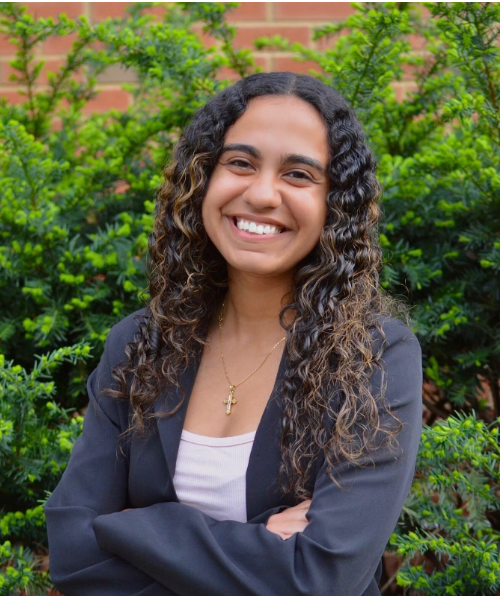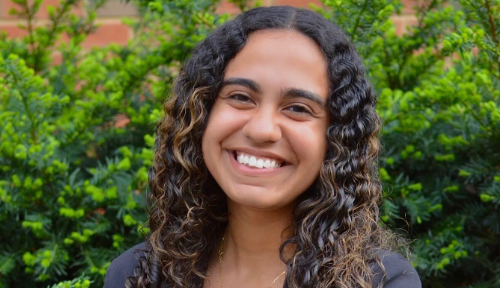Student Spotlight: Kenzie Mounir (G’30) Exploring Life Beyond Earth

First-year Ph.D. student Kenzie Mounir (G’30) is bringing an interdisciplinary curiosity to Georgetown’s Department of Biology, where she studies astrobiology, or, the search for life in the universe.
Astrobiology bridges astronomy, biology, chemistry, and geology to investigate whether the conditions that support life on Earth might exist elsewhere. “Jupiter’s moons have whole oceans on them that we haven’t explored,” Mounir explains. “Astrobiology helps us understand our place in the solar system.”
Born in Cairo, Egypt, and raised in Cleveland, Ohio, Mounir’s experiences adapting to new environments shaped her appreciation for how life can thrive under diverse conditions which is a perspective she now applies to her research on other worlds. She completed her undergraduate studies at Washington University in St. Louis, majoring in planetary science and minoring in biology. There, she analyzed lunar rock samples from NASA’s Apollo 17 mission, uncovering new insights into the moon’s geologic history.
Now at Georgetown, Mounir joins Professor Sarah Johnson’s Biosignatures Lab, which collaborates closely with NASA’s Goddard Space Flight Center and the Network for Life Detection. She is supported by the Patrick Healy Graduate Fellowship and the National Science Foundation Graduate Research Fellowship, recognizing her leadership and research potential.
Mounir looks forward to mentoring undergraduates and contributing to Georgetown’s interdisciplinary research community. “Every person has a lesson to offer you,” she shares. “I think that’s the same thing that I’m doing with [astrobiology]: taking all these different fields and putting them together as these pieces of a larger puzzle.”
